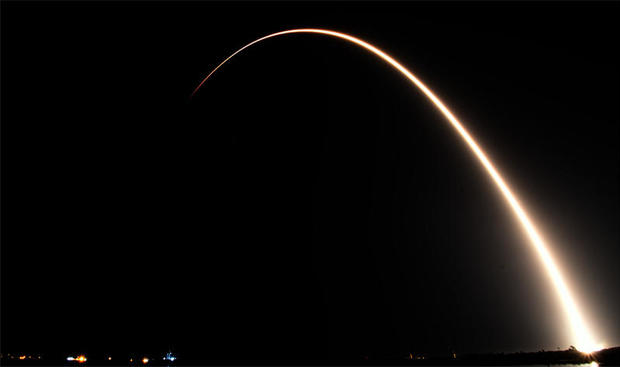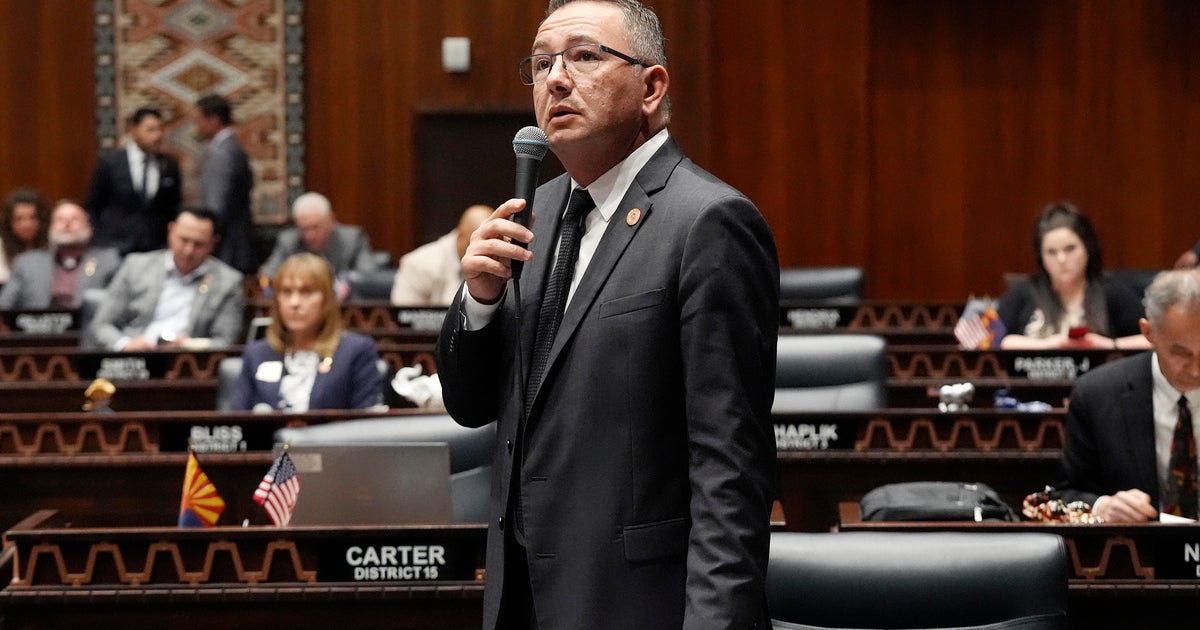SpaceX sends up 60 more Starlink internet satellites in pre-dawn launch
A SpaceX Falcon 9 rocket boosted another 60 Starlink internet relay satellites into orbit early Thursday, pushing the total launched to date to 1,265.
Using a first stage making its sixth flight, the slender rocket blasted off from pad 40 at the Cape Canaveral Space Force Station at 3:13 a.m. EST, briefly turning night into day with a brilliant plume of flaming exhaust from its nine Merlin engines.
Two-and-a-half minutes after liftoff, the first stage fell away and flew itself to an on-target touchdown on an offshore droneship. The landing marked SpaceX's 76th successful recovery, its 54th at sea. Seconds later, the second stage completed the first of two "burns" to reach the planned Starlink release altitude.
A second firing of the stage's single Merlin engine at 3:59 a.m. finished the job and 20 minutes later, all 60 Starlink satellites were released in a single batch, slowly spreading apart as they drifted away at an altitude of about 180 miles. They will use on board ion propulsion to reach their planned 340-mile-high operational orbits.
With Thursday's launch, SpaceX has put 1,265 Starlinks into orbit. Jonathan McDowell, an astrophysicist who maintains an extensive spaceflight database, reports 65 earlier Starlinks are no longer in orbit and another 17 do not appear to be maneuvering.
In any case, SpaceX is readying another Falcon 9 for a pre-dawn Sunday launch to put another 60 Starlinks into orbit as the company builds out a planned constellation of thousands of broadband relay stations.
Once enough satellites are in orbit, the Starlink system will provide continuous, high speed commercial internet access to customers anywhere in the world.
The company already is providing non-continuous beta service in selected areas of North America and Canada and is rolling out similar trial programs in Germany and New Zealand while expanding service in the United Kingdom.





